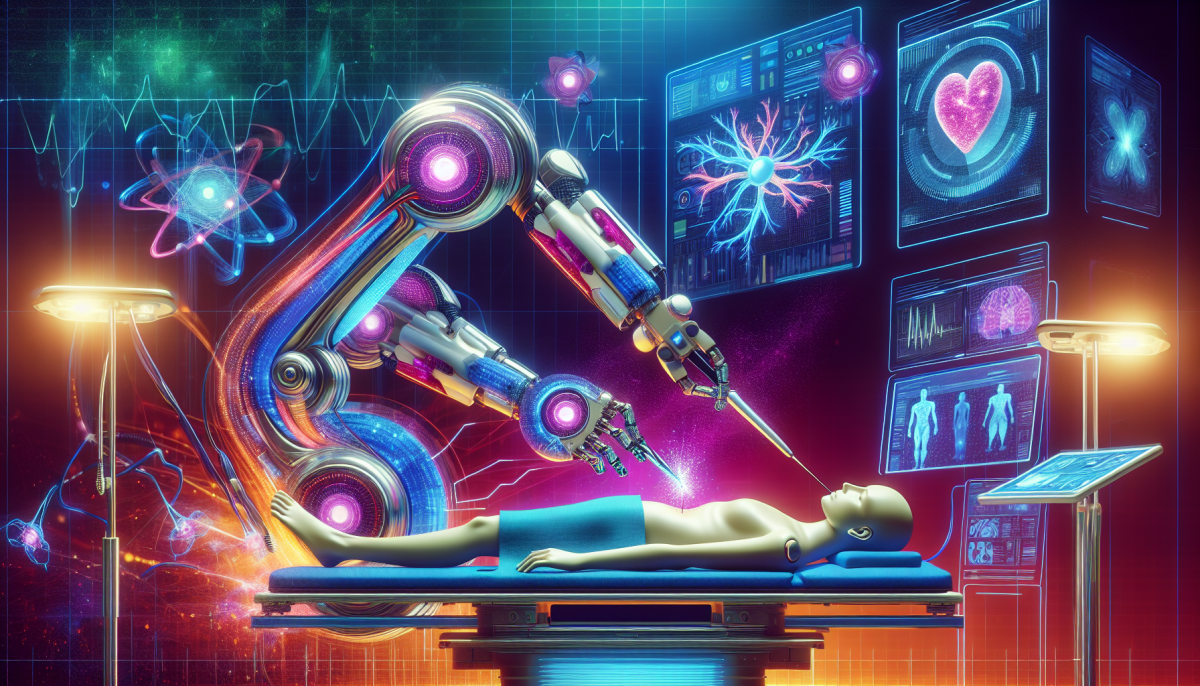AI algorithms can sift through electronic health records, medical literature, and imaging studies to identify patterns that may not be immediately obvious to human practitioners. For instance, AI systems can detect early signs of diseases, such as cancer, using image recognition software to analyze medical images. This early detection can dramatically improve patient outcomes and reduce the overall burden of healthcare costs.
Moreover, AI in healthcare enhances personalized medicine. By considering an individual’s genetic makeup, lifestyle choices, and medical history, AI tools can offer customized treatment plans tailored to each patient’s unique needs. This level of personalization leads to more effective interventions and can improve adherence to treatment protocols, ultimately resulting in better patient satisfaction and health outcomes.
In addition to diagnostics and treatment, AI also plays a role in patient engagement. Chatbots and digital assistants powered by AI are increasingly used to answer patients' questions, schedule appointments, and provide health information. This not only improves access to healthcare services but also empowers patients to take an active role in their health management, making them feel more connected to their care journey.
Benefits of AI in Healthcare Delivery
Artificial Intelligence (AI) in healthcare is transforming the way medical professionals deliver care. One of the most significant benefits is the enhancement of diagnostic accuracy. AI algorithms can analyze vast amounts of medical data quickly and efficiently, identifying patterns that may not be immediately apparent to human doctors. This capability allows for earlier detection of conditions such as cancer, diabetes, and heart disease, ultimately improving patient outcomes.
Another advantage of AI in healthcare is its ability to personalize treatment plans. By analyzing a patient’s medical history and genetic information, AI can help create tailored therapies that are more effective compared to one-size-fits-all approaches. This not only increases the likelihood of successful treatment but also minimizes side effects, making the patient’s experience more comfortable.
AI also streamlines administrative tasks, allowing healthcare professionals to focus more on patient care. For instance, AI can automate appointment scheduling, billing processes, and patient follow-ups, reducing the burden of paperwork. This efficiency enhances workflow within healthcare facilities, leading to shorter wait times and improved service quality for patients.
Moreover, AI in healthcare facilitates better patient engagement through virtual health assistants and chatbots. These technologies can provide instant responses to patients' queries, schedule appointments, and offer reminders for medication. This continuous support helps maintain open communication between patients and healthcare providers, encouraging better adherence to treatment plans and improving overall health management.
Real-World Examples of AI Success
AI in healthcare is transforming the way we approach patient care, and numerous real-world examples demonstrate its potential. One standout case is the use of AI algorithms in radiology. Hospitals around the globe are employing AI systems to analyze medical images like X-rays, MRIs, and CT scans. These systems can identify abnormalities such as tumors or fractures more quickly and accurately than human eyes alone. For instance, a recent study showcased an AI tool that detected lung cancer in patients with remarkable precision, allowing for earlier intervention and significantly improved outcomes.
Another impressive application of AI in healthcare is in predicting patient admissions. Healthcare organizations are now using machine learning models to analyze patient data and forecast when individuals are likely to need hospital services. This predictive capability enables hospitals to allocate resources efficiently, ensuring that they can provide timely care to patients. For example, a hospital in New York implemented an AI system that successfully reduced emergency room wait times by predicting peaks in patient arrivals, allowing for better staff planning and improved patient experiences.
AI in healthcare also shines in managing chronic diseases like diabetes. Wearable devices equipped with AI technology can monitor blood sugar levels in real-time. These devices can alert patients and healthcare providers to critical changes, contributing to better disease management and preventing complications. One company, for example, has developed an AI-powered insulin delivery system that adjusts doses based on continuous glucose monitoring. This innovation enables patients to maintain more stable blood sugar levels, reducing the risk of serious health issues.
Finally, AI chatbots are emerging as invaluable tools for improving patient communication and education. Many healthcare providers have started using AI-driven chatbots to answer patients' questions, schedule appointments, and provide medication reminders. These chatbots are available 24/7, which helps alleviate the pressure on human staff and ensures that patients receive immediate assistance. A prominent healthcare system employed an AI chatbot that successfully handled thousands of inquiries daily, enhancing patient engagement and satisfaction.
Challenges and Future of AI in Healthcare
As the use of AI in healthcare continues to grow, several challenges emerge that could impact the effectiveness and acceptance of these technologies. One of the most pressing issues is the concern about data privacy and security. With AI systems handling vast amounts of sensitive patient information, there is a significant risk of data breaches. Healthcare providers must ensure that they comply with regulations like HIPAA while still leveraging AI's capabilities to enhance patient care.
Another challenge lies in the integration of AI into existing healthcare systems. Many healthcare facilities are still using outdated technologies, making it difficult for them to adopt advanced AI solutions seamlessly. Moreover, the interoperability of different AI systems and healthcare platforms is crucial for achieving optimal results. If these systems cannot communicate effectively, it could lead to errors in patient care and hinder the overall benefits of AI in healthcare.
Furthermore, there is a need for comprehensive training among healthcare staff to effectively utilize AI tools. Many healthcare professionals may feel intimidated by new technology or unsure of how to incorporate AI into their daily practices. This can create resistance to adopting AI in healthcare settings. Providing education and training will be essential to ensure that healthcare providers feel confident in using AI tools to improve patient outcomes.
Looking towards the future, the potential for AI in healthcare is vast. Innovations such as predictive analytics, personalized medicine, and automated administrative tasks can significantly enhance the efficiency and quality of care. However, navigating and addressing these challenges will be crucial to fully realize the transformative potential of AI in the healthcare sector. By prioritizing data security, improving system integration, and fostering a culture of learning, the healthcare industry can harness the power of AI to revolutionize patient care.



